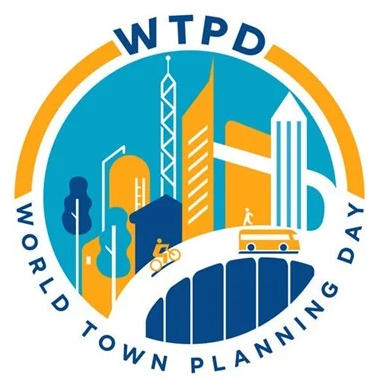
World Town Planning Day Celebration – Royal Town Planning Institute (RTPI)
World Town Planning Day is celebrated in 30 countries all around the world in each November. It is a special day to recognize and promote the role of planning in creating sustainable communities. The world celebrates the 72nd World Town Planning Day in this year.
World Town Planning Day represents an outstanding opportunity to look at planning from a global perspective and rethink the planning process and way forward. The day also encourages the planning communities to consider planning challenges and solutions around the globe more critically. Having understood the above focuses, the world town planning day of 2021 is celebrated in the world in the face of many challenges. One of the main focuses of this year’s celebrations are to promote a sustainable recovery from the pandemic in the world and promote climate change adaptation in the development process.
The Royal Town Planning Institute (RTPI) which is the prime institution of planners recognizes the above challenges by identifying two major programmes in this year’s world town planning day celebration.
- The Race to Net Zero – An event organised during COP26 by the Royal Town Planning Institute in partnership with the Global Planners Network, Commonwealth Association of Planners and the International Society of City and Regional Planners.
‘The race to net zero’ approach enables the planning communities to rethink the policies of ‘carbon net zero’ and related concepts such as ‘carbon neutrality’ and ‘climate emergency’. Further the concept encourages to review the related policy drivers including the translation of national targets into local level action in achieving balanced and zero carbon emission in cities. The programme of ‘net zero’ explores the role of planning including policy formulation, site identification and development management. The programme enables the planning communities to further examine and discuss practical application of the net zero concept, with reference to a planning related case study example.
- Launch of the report ‘Planning after Covid-19: Supporting a global sustainable recovery’ – A report makes the case for sub-national governments across the globe to be given greater fiscal capacity and powers over land development as the international community looks to shift to a low carbon future.
In this report the special attention on COVID -19 recovery can be seen on the following categories,
Housing, health, and wellbeing: The disproportionate impacts of Covid-19 on vulnerable groups – such as slum dwellers, ethnic minorities, older people living in deprived neighbourhoods – show that the provision of adequate, connected, low carbon and truly affordable housing is a primary objective to increase the global resilience to pandemics and prevent future loss of lives and economic shocks.
Economic sectors, production, and consumption: Covid-19 has caused changes in lifestyles and consumption patterns as well as changes to the economic landscape – such as the loss of employment in at-risk sectors and growth in others. These indicate that parts of the economy have the ability to adapt – e.g. teleworking, online services – making future shocks less impactful, while others – e.g. logistics, food – will need support, investments and planning.
Travel and urban infrastructure: Lockdowns have highlighted spatial economic and social cleavages in cities and unequal accessibility. The adaptation of urban space to enable walking, cycling and the continuation of key activities with social distancing show that innovative transport and land use planning can reduce the demand for travel and foster community cohesion and resilience.
You must be logged in to post a comment.